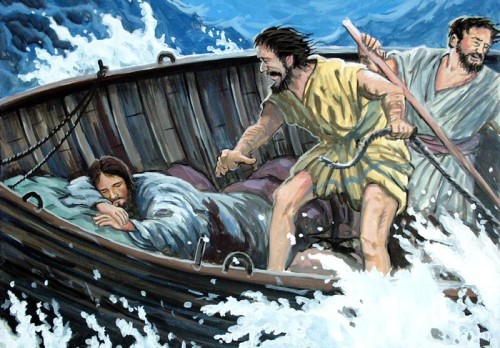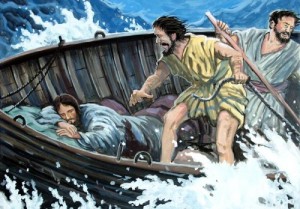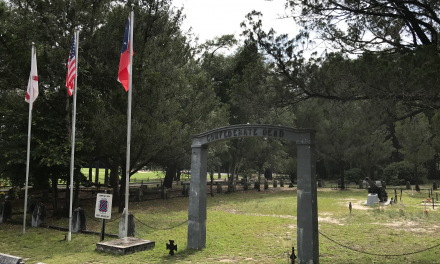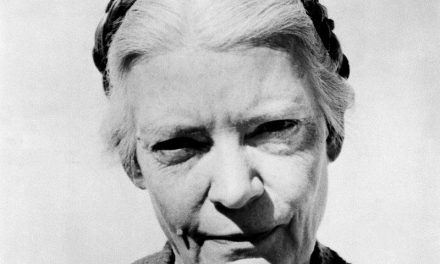Job 38:1, 8-11
Ps 107:23-31 (selections)
2 Cor 5:14-17
Mk 4:35-41
This week, with all the anticipation about the Holy Father’s ecological encyclical, it seems quite fitting that the readings point to the dominion of God over creation. In the first reading, God reminds Job that the seas and storms are but a baby to be swaddled in the powerful divine hands. And in the gospel, Jesus has long since outgrown his own swaddling clothes and now follows in his Father’s footsteps: calming the storm with a rebuke and allaying the disciples’ fears. And we, with the disciples, stand in awe of him, whom creation itself obeys.
It is not always the case that the second reading seems to speak directly to the first and last, but this week, there is an important connection that should not be missed. The reading from 2 Corinthians points to two very important and deeply related ideas. First, in light of the death of Christ, who died and was raised for all, we are impelled to live no longer for ourselves but for Christ. We are already dead to ourselves and risen in Christ, and so our lives are no longer our own.
The second point, related to this, is particularly powerful in light of the other readings’ emphasis on Christ’s power over creation. We are reminded that, whether we knew Christ in the flesh or not, we now know him in a new way: as the One in whom and by whom we are re-made as a new creation.
So, the same God who speaks from the storm to Job, reminding him that he was nothing at the time that God shut the waters within their gates, the same God who walks and eats and speaks with the disciples, and who also commands the seas and the winds to be still, is the God with whom we are so intimately joined in baptism that we have died and risen with him is the God who has now made us a new creation.
To be newly created and joined to Christ in this way is both a gift and a responsibility. We are called to know ourselves, one another, and Christ not “according to the flesh” but as a new creation. It is, of course, a challenge to do this, since we continue to know the desires and temptations of the flesh. But in Christ, we are made new. The disciples in the boat cowered in fear, though they knew Christ in the flesh. Oddly–or perhaps not so oddly if we really consider what it would have felt like to be in their shoes–the disciples, terrified of dying in the storm, are not reassured but are in fact mystified further by Christ’s command over the wind and rain. In fact, these disciples who knew Jesus “in the flesh” needed not only the resurrection, but also the Ascension and Pentecost before they stopped cowering in fear.
The good news in this week’s readings is that Christ, who commands all of creation, has risen from the dead and renewed creation, especially in those of us who believe in him. We have so many fears, temptations, passions, and vices. And yet the work of creating us anew, re-creating us whole and entire, has already been done. If the winds and the rains obey him, than surely our temptations, vices, and fears, can obey him as well.






